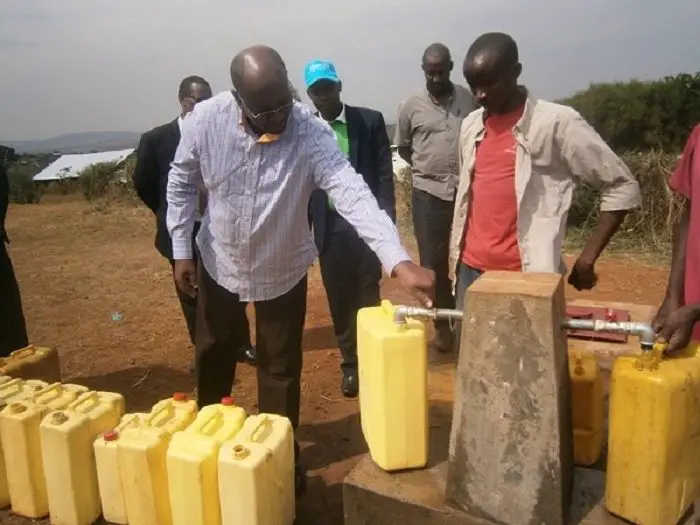A Kigali-based water firm is considering selling its waste-to-energy business model to cities across East Africa as it seeks to tap into the region’s garbage disposal crisis. Pivot Works Ltd, which runs its demonstration facility in Kigali, converts human waste into solid fuel then sells it to local manufacturing companies as a replacement for coal.
The plant uses a dewatering machine to transform toilet waste into sludge cakes, which are later dried to produce fuel for use in industrial boilers and kilns.
“We have a number of clients, including cement manufacturer Cimerwa, who are our biggest clients. There is Utexrwa, but we planning to get more when we put up plant,” said Ashley Muspratt, founder and chief executive officer, adding that, “Negotiations with the government are still ongoing.”
Waste in most cities in the region is dumped in landfills, posing a health and sanitation dangers. Increasing urbanisation has left cities in Rwanda, Uganda, Kenya and Tanzania without proper ways to manage the growing volume of waste.
Kigali, for instance, has no sewage or faecal sludge treatment facility and plans to install a central sewage management system are stalled because of lack of funding.
As a result, unsafe waste disposal constitutes a serious hindrance to the government’s efforts to provide adequate, safe and sustainable sanitation. However, this is a common problem across the region where cities do not have adequate sewage systems.
A 2014 study published in the Journal of Water, Sanitation and Hygiene for Development, showed that provision of adequate, safe and sustainable sanitation coverage is a growing challenge in sub-Saharan Africa.
Researchers said that while processing faecal sludge for industrial fuel would serve as a safe collection and treatment option, it hasn’t been fully explored.
Experts warn that sludge, which ends up in rivers, ditches or is improperly handled, could compromise both public health and the environment in regional cities.
It is estimated that 2.4 billion users of on-site sanitation systems generate faecal sludge that goes untreated.
With Pivot seeking to commercialise its waste-to-energy business model, Mrs Muspratt said this is an opportunity her company wants to tap into.
“We are organising an event in at least five major cities in East Africa in October, with a view to showcasing the concept prior to building plants in these cities,” she said.
Pivot has already secured a two-year partnership with the Kigali City Authority to be extended upon successful demonstration of the fuel extraction and production technology.

Leave a Reply